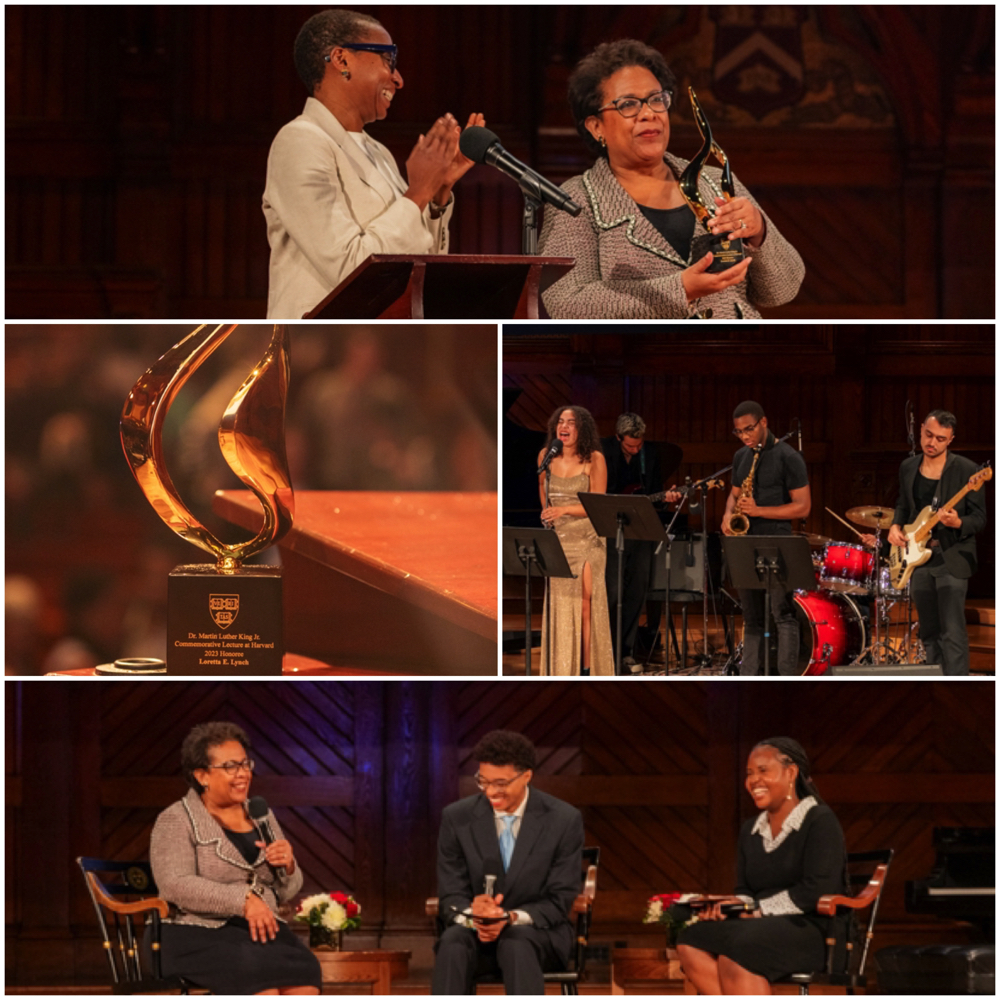Rolling back abortion rights, ending affirmative action, and threatening democratic processes: sometimes, says former U.S. Attorney General Loretta Lynch ’81, J.D. ’84, she feels like “forward progress in the world has stopped yet again.” On Wednesday evening, Lynch gave the annual Dr. Martin Luther King Jr. Commemorative Lecture, and asked, “What happened to the dream?” Though King outlined a vision of equality in his famous 1963 “I Have a Dream” speech, Lynch reminded the audience that for every step forward, there is often a step back.
Lynch served as U.S. attorney general from 2015 to 2017 under President Barack Obama, J.D. ’91. She was the second woman and first black woman to hold the position. While in office, she focused on protecting and expanding LGBT and voting rights.

Before a sold-out Sanders Theatre audience, Lynch began her lecture by honoring the fifty-fifth year since King’s assassination. “Anniversaries and commemorations are important,” she said, “even when they are this painful.” Then, she turned to another, lesser-known anniversary.
125 years ago this November, white supremacists in Wilmington, North Carolina, carried out the nation’s only successful coup d’état. Leading up to the coup, Wilmington’s majority-black population was thriving, Lynch recounted. The Republican-Populist fusion government was expanding hospital access, providing public education, and increasing voter registration. Black Wilmington residents owned homes, businesses, and newspapers, and even held seats on the city council.
But in the election of 1898, the Democrats ran a campaign fueled by fear of black success. They claimed that “blacks were overrunning the state and taking their jobs,” Lynch said. (“Does any of that sound familiar?” she asked.) Two days after the Democrats lost the election, Lynch said, “a mob of heavily armed white supremacists descended upon the unarmed black people of Wilmington, and literally drove them from the city.” The insurrectionists forced the newly-elected city council to resign and installed themselves as leaders.
While some might interpret the Wilmington coup as evidence of failure, as the antithesis of King’s dream, Lynch asserts that the resulting resistance, of a kind later exemplified by King, is simply a part of the cycle of gradual social progress. “Power concedes nothing without a struggle,” she said. “The strength of the backlash directly reflects the power it’s trying to suppress.”
But the passage of time alone, Lynch argued, will not bring forth the expansion of rights. “For all of you who may look back on the Civil Rights movement wishing you participated, your time is now, and we need your energy,” she said. “The pendulum has swung this way before.” “We don’t know,” she added, “how long this particular pendulum will remain here, but it will swing again.”









